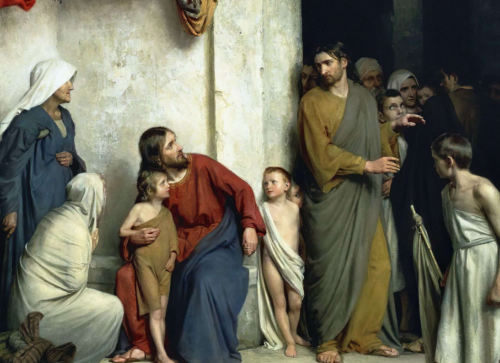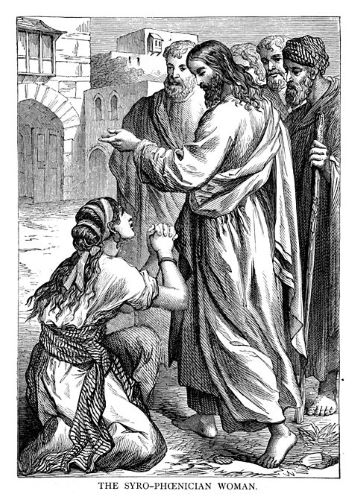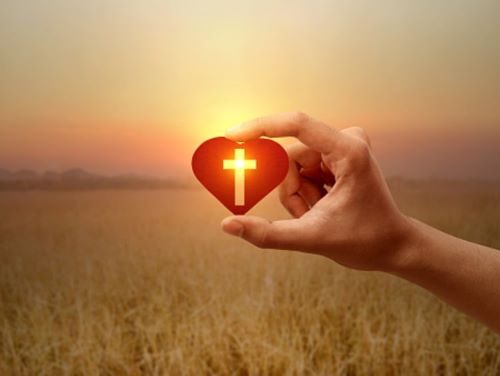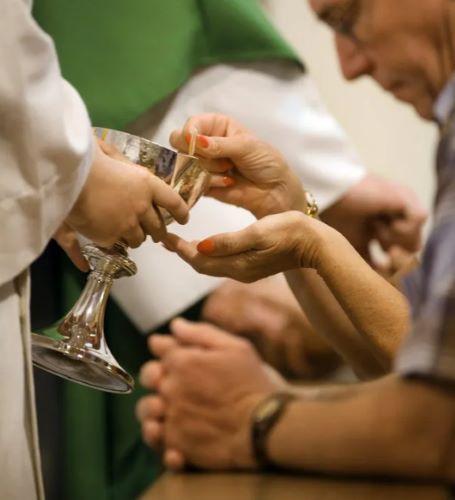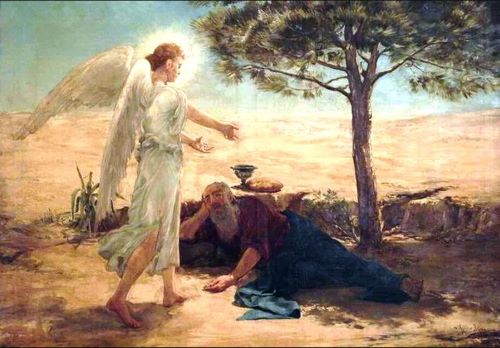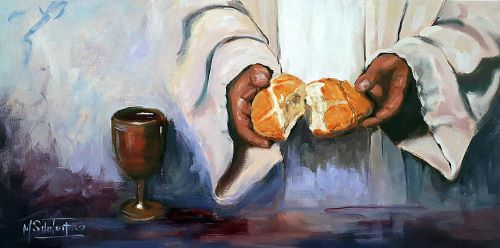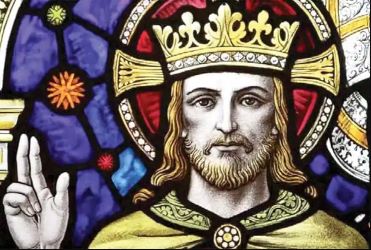
Fed With God’s Justice
Year B (Advent 3 – A 7-Week Advent)
Ezekiel 34:11-16, 20-24
Psalm 100
Ephesians 1:15-23
Matthew 25:31-46
May the words of my mouth O God… speak your truth…
It can be easy for us to identify with those in need… so much so that our hearts break… and for us to want to reach out and help… especially when they’re seen as innocents… like starving children in third world countries… or the victims of natural disasters… or the casualties of war… but what if they don’t seem to us to be so innocent… like those who have inherited a genetic predisposition to alcoholism… and spend all the family’s grocery money on drink… does that make them… or others in need… undeserving of our empathy or help…
Today’s reading from Ezekiel tells us that God will seek out and search for God’s sheep… and God speaks directly to those who have scattered the weak far and wide… who have pushed them out with their shoulders and the weight of their bodies… and butted the weak with their horns… and God says that God will judge between the fat sheep and the lean sheep…
And verse 16… in particular… needs to be unpacked… our NRSV translation says… I will bind up the injured… and I will strengthen the weak… but the fat and the strong I will destroy… but why… is it because there’s something intrinsically wrong with being fat and healthy… no… the thing that’s wrong… is being fat and healthy when others around you are emaciated and ill… and it’s consistent with what Ezekiel said earlier… in 16:49… that the sin of Sodom was actually the city’s lack of hospitality… their unwillingness… due to their pride and haughtiness… to share their excess food and prosperous ease with those who were poor and marginalized…
But will they really be destroyed… the original Hebrew can be translated as… I will destroy… but in the Greek Bible… called the Septuagint… it can be read… I will complete them… or… I will tend them rightly… and being tended rightly is better than being destroyed… so what accounts for the difference… it’s the similarity between two Hebrew letters which… according to the commentators… are often confused and can cause different translations… and being tended rightly makes much more sense… since if you’re destroyed… how can you be fed with justice… and being fed with justice is a better way to understand why not meeting the needs of the hungry is so egregious to God… and in vv. 20 – 24… Ezekiel describes the leaders as stronger sheep… who trample the pasture… dirty the water that others must use… and who push the weaker ones aside… . so some of the flock must be fed with Christ the King’s justice…
The reading from Ephesians doesn’t specifically mention kingship… but the phrase “a spirit of wisdom and revelation” recalls the prophecies of the charismatic Davidic ruler… and in the midst of these pastoral themes about sheep and shepherds… we’re reminded that in the ancient Near East… the word for shepherd… and the word for king… are the same word… and David… who was called the Shepherd King… has already been dead for about 500 years by the time Ezekiel prophesied… and so when God says… I will set one shepherd over them… my servant David… the early Christians interpreted this passage to be about Jesus… and when Jesus speaks these words in Matthew… it’s two days before he’s crucified for holding Israel’s leadership accountable… for holding up God’s mirror of justice to their faces…
On December 11, 1925… in opposition to increasing secularism… in opposition to class distinctions… in opposition to unbridled nationalism… and in opposition to those worldly would-be kings like Hitler and Mussolini… the Roman Catholic Church instituted Christ the King Sunday… that’s where we get it from… it’s not an ancient feast day… and not one of the older festivals of the Protestant Reformation… or even the Church of England… it’s new… and in establishing this feast… Pope Pius XI said that it wasn’t necessary to explain even just a little… why the feast of Christ’s Kingship needed to be observed in addition to all the others… which already celebrated his Kingly Dignity… but that it would be enough to simply say… that while the object of the other feasts is Christ… this one lifts up his royal title… and that its celebration is a day to affirm God’s reign over those empires which fail to hunger and thirst for God’s justice…
We reject the idea of works righteousness… we know that there’s no amount of work we could do… that would earn us reconciliation with God in Christ… but this Gospel passage seems to focus on works righteousness… it implies that being a sheep and getting to be at God’s right hand is what counts… and is whether one has acted with loving care towards needy people… and this way of acting isn’t considered to be extra credit… but is the basis of judgment…
Yes… today’s Gospel is a tough passage… it’s the only scene in the New Testament with any details about the Last Judgment… and nothing is said about grace… justification… or the forgiveness of sins… but Fr. Robert Capon says that in the Great Judgment… all of the scenes of Jesus’ earlier parables come full circle… ] now in Ezekiel… God says that God will separate sheep from sheep… but in this parable… Jesus says that the Son of Man… will separate us one from another as a shepherd separates the sheep from the goats… but do you see what that means… he asks… Jesus is the Good Shepherd and the Good Shepherd lays down his life for the sheep… but he lays down his life for the goats as well… because on the cross he draws ALL to himself… it’s not that the sheep are his… but the goats are not… the sheep and the goats are all his…
And Jesus’ drawing ALL to himself… remains the ultimate gravitational force in the universe… not even evil can escape it… so it doesn’t have a choice but to be at the final party… ] though it may be hidden… if you will… in the spear wound in Christ’s side to keep it from being a wet blanket on the proceedings… but it is not… for all that… any less a part of Jesus’ shepherding of his flock…
But even though we reject the idea of works righteousness for our own salvation… we sometimes impose a works righteousness expectation on those who come to us for help… be self-reliant… grow up… stop making bad decisions… pick yourself up by your bootstraps… and maybe every single one of us rejects that idea… but we function within systems which not only embrace that idea… but which make it difficult to get out from under the weight of them… it’s like being a salmon swimming upstream against a tidal wave of self-interest and greed… and which yells over and over again that some of us are not deserving of having our basic human needs met… like those specifically mentioned in this morning’s Gospel… In our mainline churches… we tend to preach a comfortable Jesus… but the message of today’s readings really ought to trouble us… because there are far too many people in this world who are hungry and sick… and because in the eyes of the world… we in this country are the fat and healthy… maybe not every single one of us… but enough of us… and we ought to be so troubled that this injustice exists… that we do all we can… to take Ezekiel’s words to heart… and feed those who would be our kings… with God’s justice… and so that we can name and welcome Christ as our only King…

